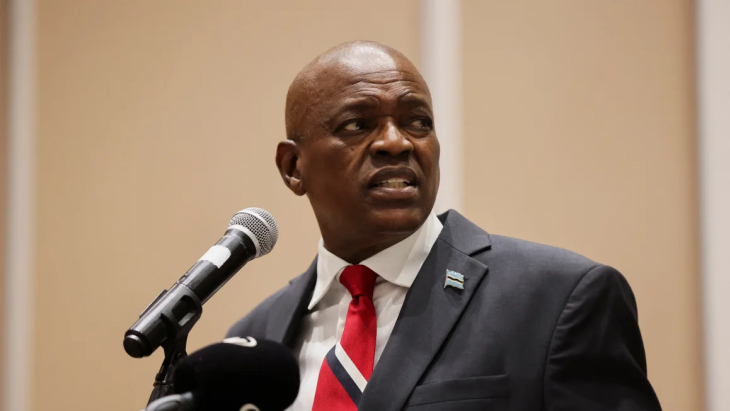Botswana’s President Mokgweetsi Masisi conceded defeat on Friday after preliminary results showed his party had lost its parliamentary majority by a landslide in this week’s election, ending nearly six decades in power, CNN reported.
With more than half of constituencies reporting, the opposition coalition Umbrella for Democratic Change (UDC) had a significant lead, putting its leader, lawyer Duma Boko, on track to win the presidency.
Analysts said that mounting socio-economic grievances, particularly among young people, were the downfall of the ruling Botswana Democratic Party (BDP), which has governed the small southern African state since independence from Britain in 1966.
Botswana has largely depended on its diamonds for income, but a downturn in the global diamond market caused economic growth to plummet this year, while unemployment rose to 28%.
State television showed that based on results from 41 of the 61 constituencies up for grabs, the UDC had won 26 seats in parliament while the BDP had only three. Members of parliament elect the president.
Boko, who has not yet spoken publicly since the result, had campaigned on issues such as raising the minimum wage and increasing social grants.
“Although I wanted to stay on as your president, I respect the will of the people and I congratulate the president-elect. I will step aside and I will support the new administration,” Masisi said at a press conference.
The capital Gaborone was calm on Friday morning, with small groups of opposition supporters celebrating in the streets.
“I did not ever think I would witness this change in my life,” said 23-year-old student Mpho Mogorosi. “The BDP had stayed too long in power and I am proud to be part of the people that removed them for a better Botswana.”
The BDP was the second long-ruling party in southern Africa to suffer a defeat at the polls this year, after South Africa’s African National Congress also lost its parliamentary majority following 30 years in power and was forced to form a coalition government.
Neighboring Namibia will hold elections later this month in which the ruling SWAPO party, which has governed since 1990, is also expected to face a stiff challenge.
“The outcome of Botswana’s elections should serve as a warning to long-time ruling parties across southern Africa and beyond that without economic progress and employment opportunities, political dominance will falter,” said Zaynab Hoosen, an Africa analyst at Pangea-Risk.
